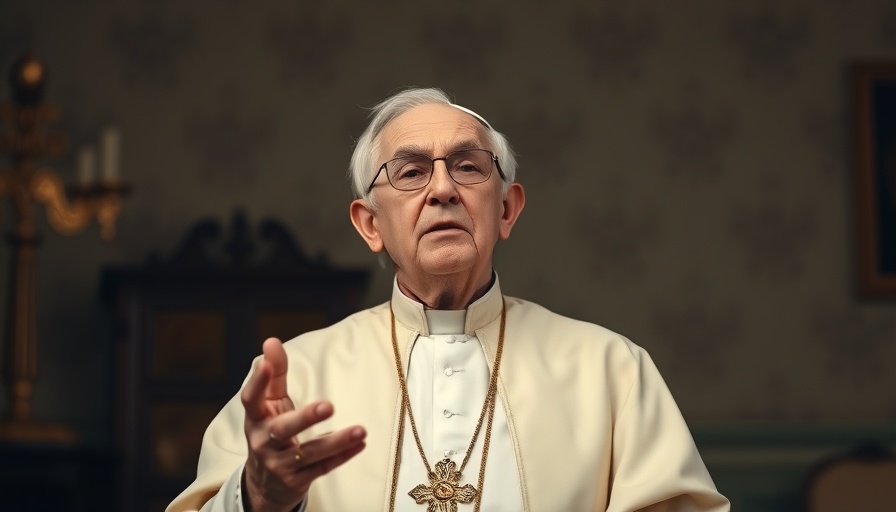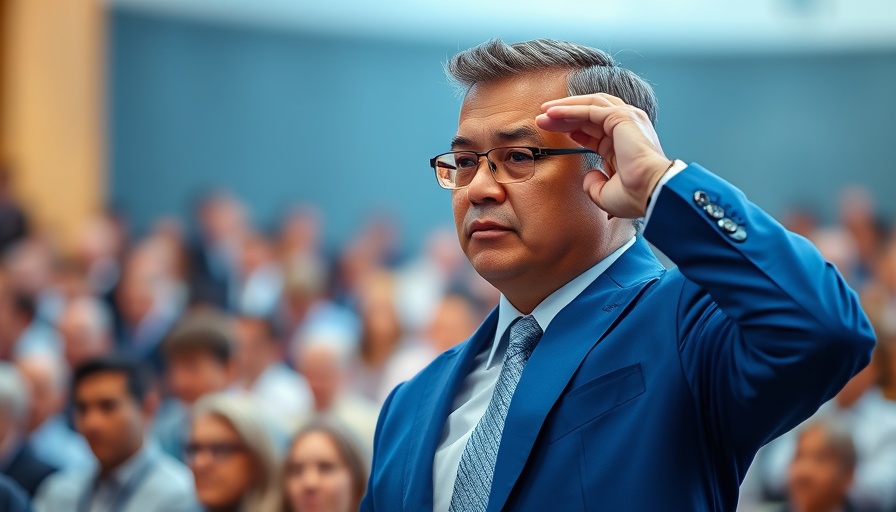
Concerns Over Middle East Escalation: A Global Perspective
The recent conversation between Russian President Vladimir Putin and former U.S. President Donald Trump sheds light on the growing tensions in the Middle East and the ongoing war in Ukraine. As both leaders recognized, the implications of these conflicts extend beyond their borders, impacting global stability and security.
During their hour-long call, Trump expressed concerns about Israel's military actions against Iran, which aim to dismantle Iran’s nuclear capabilities. Putin, in turn, stressed the potential risks of escalating violence in the region and indicated Russia's commitment to mediating a resolution. This kind of dialogue is crucial; the ripple effects of military operations in the Middle East can drastically affect geopolitical alliances and conflicts worldwide.
Negotiations for Peace: Ukraine and Iran
Trump's urgent calls for Russia to cease its military actions in Ukraine resonate deeply in a landscape already fraught with complexity. The intertwining of Russia's relationship with Iran, particularly following the Ukraine war, complicates matters further. Iran has been providing military support to Russia, complicating peace negotiations not just in Ukraine but also regarding its nuclear ambitions.
Experts warn that peace talks on the Iranian nuclear program could be jeopardized by the ongoing violence. The recent military escalations that included Israeli airstrikes on Iranian targets only highlight the precarious situation. The failure of the anticipated sixth round of talks in Oman, initially meant to curb Iran’s nuclear activities, illustrates the urgent need for diplomatic engagement.
The Exchange of Prisoners: A Possible Path Forward?
Amidst the turmoil, another significant topic discussed during the call was the exchange of prisoners between Russia and Ukraine. Highlighting ongoing negotiations, both sides have made efforts to return detained combatants, indicating some level of cooperation despite the hostility. This aspect of diplomacy is often overshadowed by active conflict, yet it serves as a reminder that there are opportunities for dialogue even amidst violence.
Ushakov's commentary, noting that both seriously wounded soldiers and younger combatants were part of this exchange, reflects a humanitarian angle often lost in broader geopolitical discussions. Recognizing the human cost of war is essential for fostering compassion and understanding in policymaking.
Geopolitical Implications: Why Parents Should Care
As parents, homeowners, and community members, the effects of global tensions resonate with us here at home. Decisions made in international diplomacy have a way of trickling down, affecting economic stability, safety, and community welfare. For instance, the rising tensions and potential spending on military operations can divert resources from crucial societal needs like education, public health, and infrastructure.
In an increasingly interconnected world, parents might wonder how to educate their children about these complex issues. It's essential to encourage family discussions on international affairs to foster understanding and civic engagement. Knowledge empowers our youth to become informed citizens, capable of contributing to a more peaceful future.
The Road Ahead: Opportunities for Change
The discussions between Trump and Putin highlight critical paths forward in multiple arenas: the Middle East, Ukraine, and beyond. The intricate web of alliances and enmities requires careful navigation, and the willingness to pursue diplomatic solutions is essential. Russia’s interest in mediating talks shows a potential avenue for constructive engagement, albeit under challenging circumstances.
As global citizens, we must hold our leaders accountable for pursuing peace and recognizing the importance of dialogue. The hope is that ongoing discussions can pivot from military confrontations to diplomacy, fostering stability and security for families worldwide.
Call to Action: Engage in Global Awareness
In light of the pressing issues discussed between Putin and Trump, it’s vital for us as citizens to stay informed and engaged. Understanding global dynamics helps us advocate for policies that promote peace and stability in our communities. Let’s take this conversation beyond the headlines—discuss it with family, share insights with friends, and be proactive in demanding accountability in global affairs.
 Add Row
Add Row  Add
Add 




 Add Row
Add Row  Add
Add 

Write A Comment